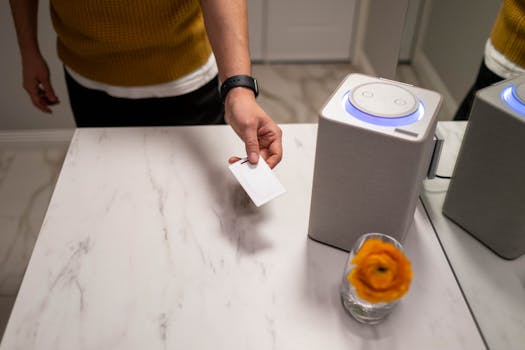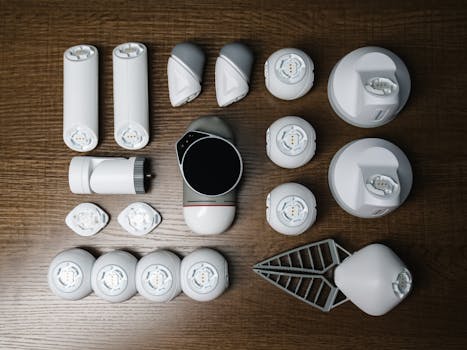Smart Homes 2025: The Rise of AI-Driven Devices
Smart Homes 2025: The Rise of AI-Driven Devices is transforming the way we live, work, and interact with our living spaces. With the integration of Artificial Intelligence (AI) and Internet of Things (IoT) technology, smart homes are becoming increasingly intelligent, automated, and efficient.
Introduction to Smart Homes

A smart home is a residence that is equipped with advanced technology and devices that can be controlled and monitored remotely. These devices can include thermostats, lighting systems, security cameras, and home appliances, among others. The primary goal of a smart home is to provide a comfortable, convenient, and secure living environment for its occupants.
AI-Driven Devices in Smart Homes

AI-driven devices are revolutionizing the smart home industry by providing advanced automation and control capabilities. These devices can learn the habits and preferences of the occupants and adjust their settings accordingly. For example, an AI-powered thermostat can learn a person’s schedule and temperature preferences and adjust the temperature of the home to optimize energy efficiency and comfort.
Benefits of AI-Driven Devices in Smart Homes

The benefits of AI-driven devices in smart homes are numerous. They can help reduce energy consumption, improve home security, and enhance the overall living experience. Additionally, AI-driven devices can provide personalized recommendations and automate routine tasks, freeing up time for more important activities.
Examples of AI-Driven Devices in Smart Homes

Some examples of AI-driven devices in smart homes include:
- Amazon Echo and Google Home: These voice assistants can control various smart devices, play music, and provide information on news, weather, and traffic.
- August Smart Lock: This smart lock can learn the user’s schedule and unlock the door automatically when they approach.
- Nest Thermostat: This thermostat can learn the user’s temperature preferences and adjust the temperature of the home to optimize energy efficiency and comfort.
Challenges and Limitations of AI-Driven Devices in Smart Homes

While AI-driven devices have the potential to revolutionize the smart home industry, there are also challenges and limitations to consider. These include:
- Privacy concerns: The use of AI-driven devices raises concerns about data privacy and security.
- Interoperability issues: Different devices and systems may not be compatible with each other, making it difficult to integrate them into a single smart home system.
- Cost: AI-driven devices can be expensive, making them inaccessible to many consumers.
Conclusion

In conclusion, Smart Homes 2025: The Rise of AI-Driven Devices is transforming the way we live and interact with our living spaces. While there are challenges and limitations to consider, the benefits of AI-driven devices in smart homes are numerous. As the technology continues to evolve, we can expect to see even more innovative and integrated smart home solutions in the future.






